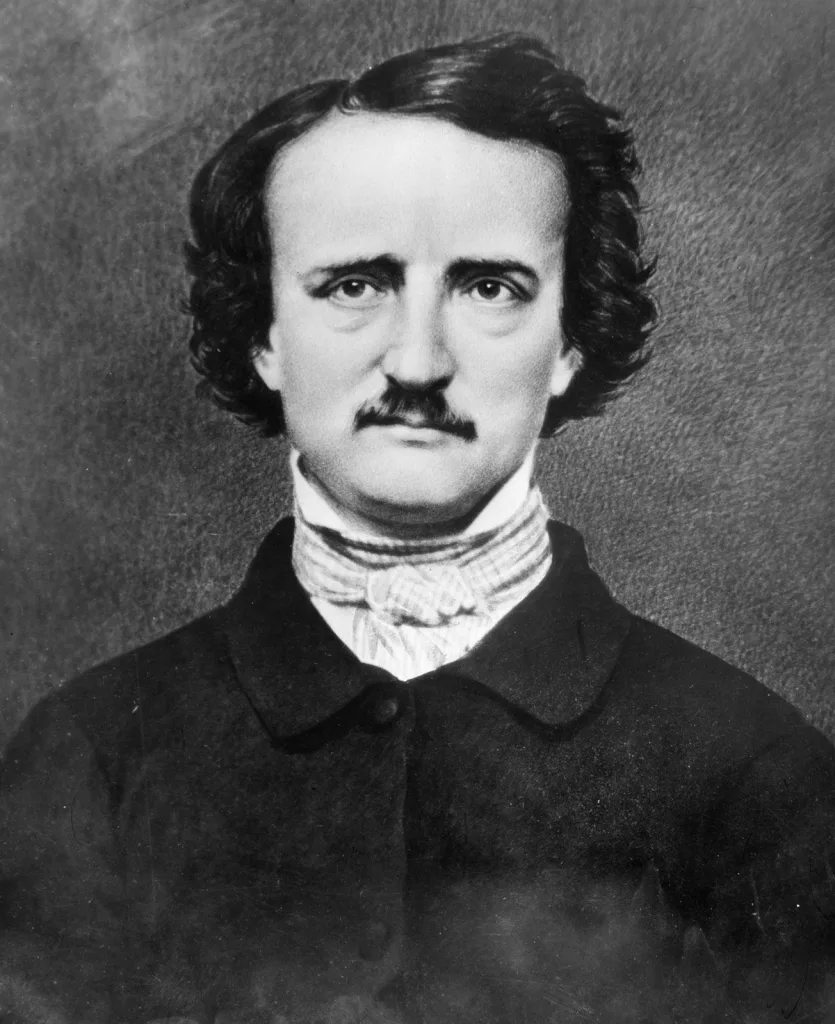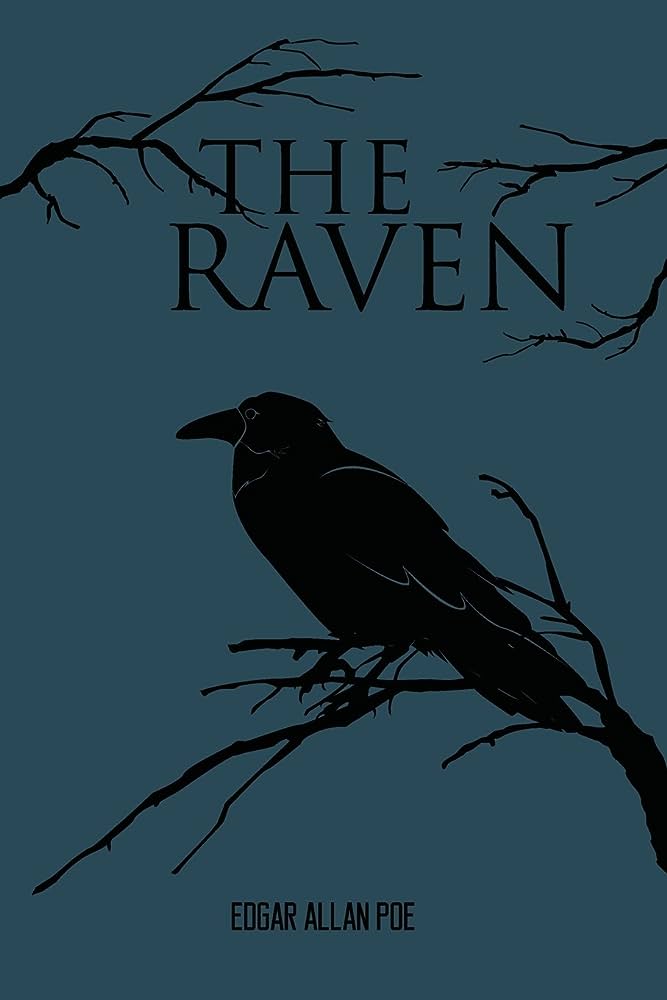Lenore is a crucial character in Edgar Allan Poe’s famous poem, “The Raven.” Throughout the poem, the narrator mourns the loss of Lenore, who is described as his beloved and deceased girlfriend. Lenore holds significant symbolic value, representing various interpretations within the narrative.
One possible interpretation is that Lenore symbolizes idealized love. The narrator’s deep affection for her is evident as he constantly longs for her presence. He describes her as “rare and radiant,” suggesting that she possesses qualities of beauty and perfection. Lenore may represent the narrator’s longing for an idyllic and pure form of love, which he believes he has lost forever.
Another interpretation is that Lenore represents truth. The narrator’s obsession with her and his inability to forget her suggest that Lenore embodies a concept that cannot be ignored or avoided. The constant presence of Lenore in the narrator’s thoughts could symbolize the truth that he cannot escape, possibly alluding to some hidden or painful reality in his life.
Additionally, Lenore may be seen as a symbol of hope for a better world. The narrator’s lamentations and desperation to be reunited with Lenore in Heaven indicate his yearning for a higher existence. Lenore’s angelic description, being “rare and radiant,” reinforces the notion that she represents a heavenly realm, where the narrator hopes to find solace and happiness.
Some literary critics argue that Lenore is a representation of Poe’s own deceased wife, Virginia. Poe’s personal life was marred by tragedy, as Virginia died at a young age. The pain and longing expressed by the narrator in “The Raven” could mirror Poe’s own grief and desire to be reunited with his beloved wife.
Lenore holds a significant role in Poe’s “The Raven.” She represents various interpretations, such as idealized love, truth, and hope for a better world. Whether she symbolizes Poe’s own lost love or serves as a metaphor for something deeper within the narrative, Lenore’s presence remains haunting and elusive, leaving room for readers to interpret and draw their own conclusions.
What Happens To Lenore In The Raven?
In the poem “The Raven” by Edgar Allan Poe, Lenore is a character who is mentioned multiple times but never directly seen or described. Lenore is portrayed as the lost love of the narrator, who is deeply saddened by her passing. The exact circumstances of Lenore’s death are not explicitly stated in the poem. However, it is implied that she has passed away and is no longer living.
Throughout the poem, the narrator is haunted by his memories of Lenore and the grief he feels from her absence. He desperately seeks solace and comfort, hoping to be reunited with her in the afterlife. The raven, a mysterious and ominous bird, becomes a symbol of death and the narrator’s anguish.
Towards the end of the poem, the narrator asks the raven if he will ever be reunited with Lenore in heaven. In a chilling response, the raven simply answers, “Nevermore.” This devastating reply implies that the narrator’s hope of being reunited with Lenore in the afterlife is shattered, and he will never see her again, even in the realm of eternity.
Lenore’s role in “The Raven” is that of a lost love, whose absence and death deeply affect the narrator. Her passing and the narrator’s yearning for her serve as central themes in the poem, highlighting the pain and grief associated with loss and the longing for a reunion in the afterlife.

Who Is Lenore And How Does The Narrator Feel About Her?
Lenore is a significant character in the narrative, serving as the narrator’s girlfriend who has unfortunately passed away. The narrator holds deep affection for Lenore and continues to harbor strong feelings of love and longing for her. Despite her absence, the narrator’s emotions remain closely connected to Lenore, as he continues to miss her dearly.
The narrator’s love for Lenore is profound, and it is evident that their relationship held immense value in his life. He cherished her presence and deeply appreciated the moments they shared together. However, Lenore’s untimely death has left a void in the narrator’s life, leading to a sense of grief and sadness.
The narrator’s feelings for Lenore are not limited to mere affection; they are characterized by a deep emotional attachment. He often reminisces about their time together, reflecting on the happiness and joy that Lenore brought into his life. The memories of their relationship continue to evoke strong emotions within him, further emphasizing the depth of his feelings for Lenore.
The narrator’s longing for Lenore is palpable, as he yearns for her presence and companionship. He still deeply loves her, and her absence has left an indelible impact on his life. The narrator’s feelings towards Lenore are not fleeting; they persist even after her passing, indicating the enduring nature of their connection.
Lenore is the narrator’s deceased girlfriend, and he feels an intense love and longing for her. Despite her absence, he continues to hold her dear in his heart, cherishing the memories they shared and deeply missing her presence in his life.
Why Is Lenore Important In The Raven?
Lenore plays a significant role in Edgar Allan Poe’s poem, “The Raven.” Her importance lies in the symbolic representation she holds throughout the narrative.
1. Symbol of Idealized Love: Lenore is portrayed as the narrator’s lost love, a figure of deep affection and longing. Her absence creates a sense of melancholy and drives the narrator’s emotional turmoil. She serves as a symbol of the idealized love that the narrator yearns for but can never regain.
2. Representation of Beauty and Truth: Lenore is described as “rare and radiant,” highlighting her beauty and purity. This portrayal positions her as a symbol of both physical and spiritual beauty, representing the narrator’s desire for something beyond the mundane. Lenore embodies truth and perfection, contrasting with the darkness and uncertainty that the raven brings.
3. Catalyst for the Narrative: Lenore’s name is repeated throughout the poem, emphasizing her importance in the narrator’s thoughts and memories. Her presence, or rather absence, serves as the catalyst for the narrator’s descent into madness. The repetition of her name intensifies the sense of loss and longing, pushing the narrator further into his obsessive thoughts.
4. Pursuit of Hope: The narrator’s desperate hope to be reunited with Lenore is a driving force in the poem. His repeated questioning of the raven about the possibility of seeing Lenore again reflects his search for hope in the face of despair. Lenore represents the unattainable hope that the narrator clings to, seeking solace in the belief that she may exist beyond the realm of death.
Lenore’s importance in “The Raven” lies in her symbolic representation of idealized love, beauty, truth, and hope. Her absence fuels the narrator’s emotional turmoil and obsessive thoughts, driving the narrative forward. Lenore serves as a reminder of the unattainable and the longing for a better world, adding depth and complexity to the poem.
Who Does Lenore Represent In The Raven?
In Edgar Allan Poe’s famous poem “The Raven,” the character of Lenore is widely believed to represent Poe’s own deceased wife, Virginia. Critics and scholars have analyzed the poem and drawn connections between the fictional Lenore and Virginia Poe, based on various factors.
1. Biographical Context: Edgar Allan Poe’s wife, Virginia, passed away in 1847 due to tuberculosis. This tragic event deeply impacted Poe, and it is believed that his grief influenced the creation of “The Raven,” which was published in 1845. The poem’s exploration of loss and mourning aligns with the emotional turmoil Poe experienced after Virginia’s death.
2. Similar Names: The name Lenore bears a resemblance to Virginia, both in terms of sound and structure. This linguistic similarity suggests that Poe may have intended Lenore to serve as a symbolic representation of his late wife.
3. Theme of Death and Loss: Throughout “The Raven,” the narrator is haunted by the loss of Lenore, who is portrayed as a beautiful and cherished figure. This mirrors the way Poe mourned his wife’s death and frequently referenced her in his works. The poem’s emphasis on the narrator’s feelings of loneliness, emptiness, and longing for Lenore parallel the grief that Poe himself experienced.
4. Emotional Connection: The narrator’s intense emotional reaction to Lenore’s absence in the poem mirrors the deep emotional connection Poe had with his wife. Poe’s writing often explored themes of love, loss, and the power of emotions, making it likely that he imbued Lenore with his own feelings towards Virginia.
5. Personal Experience: Poe’s own letters and writings reveal his profound love for Virginia. He often referred to her as his muse and expressed his deep sorrow and longing after her death. This personal connection adds weight to the interpretation that Lenore represents Virginia.
While it is important to note that “The Raven” is a work of fiction and may contain elements that extend beyond Poe’s personal experiences, the parallels between Lenore and Virginia Poe are significant. The portrayal of Lenore as a lost love reflects Poe’s own mourning for his deceased wife and adds a poignant layer of personal emotion to the poem.

Conclusion
Lenore in Edgar Allan Poe’s “The Raven” serves as a powerful symbol that represents several significant themes and emotions within the poem. While Lenore is described as the narrator’s deceased girlfriend, she takes on a deeper meaning throughout the narrative. She embodies the concept of idealized love, beauty, truth, and hope for a better world.
Lenore is repeatedly described as “rare and radiant,” suggesting an angelic presence and alluding to heavenly qualities. This portrayal aligns with the idea of her representing a symbol of hope and a better afterlife. The narrator’s deep love and longing for Lenore are evident as he mourns her loss and seeks solace in her memory.
Furthermore, Lenore’s elusiveness and ubiquitous nature emphasize her symbolic significance. She haunts the narrator’s thoughts, unable to be forgotten, and represents a truth that cannot be escaped. The narrator’s yearning for Lenore and his desire to be reunited with her in heaven reflect his longing for a higher truth and a sense of transcendence.
Critics have also suggested that Lenore may symbolize Poe’s own deceased wife, Virginia, adding a personal and autobiographical dimension to the poem. This interpretation adds depth and emotional resonance to the portrayal of Lenore, as it reflects Poe’s own grief and longing for his lost loved one.
Lenore in “The Raven” is a complex and multi-dimensional symbol that represents love, beauty, truth, and hope. Through her portrayal, Poe explores profound themes of loss, mourning, and the human desire for transcendence. Lenore’s presence lingers throughout the poem, leaving a lasting impact on the narrator and readers alike.
